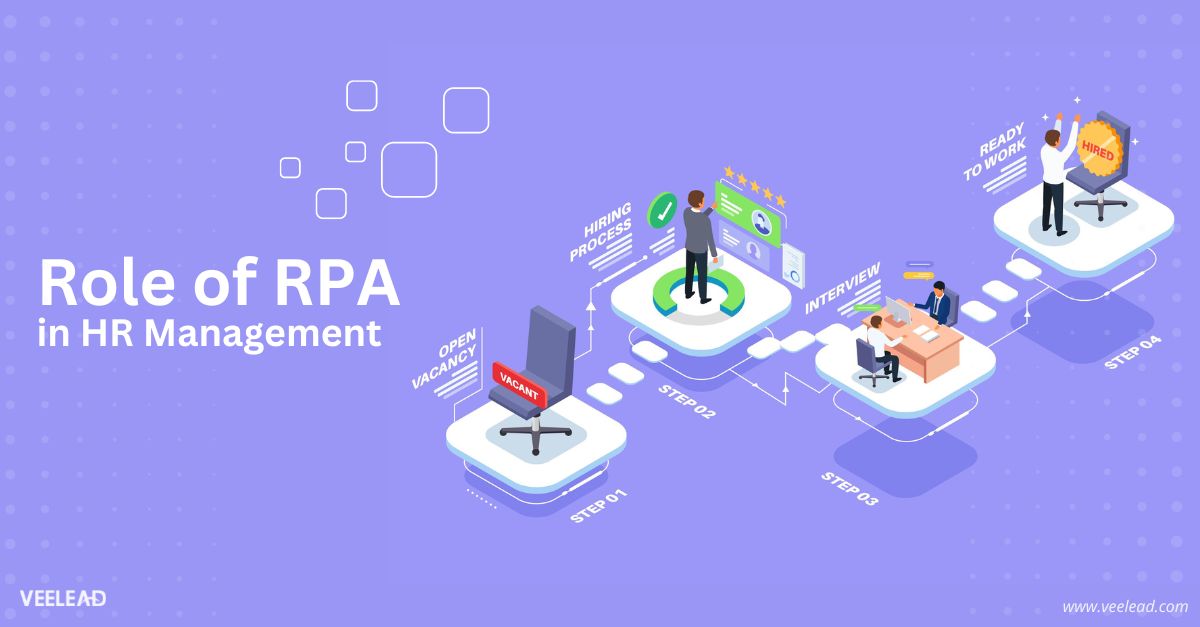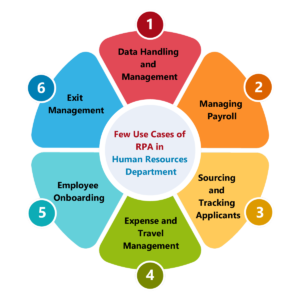

Every business has a common dream to grow in the coming years. It encourages them to chalk out various outcome-driven strategies that directly improve productivity, sales, and ROI. But do you think only making the best sales and marketing strategy will help your business grow? Well, certainly not.
It’s necessary to implement your business strategy properly and make sure your employees work accordingly. Here, the role of the HR (human resources) department of your organization becomes crucial. Your HR professionals are responsible for providing an adequate environment to your staff and encouraging them to work efficiently and deliver their 100%.
The HR department also has a direct role in hiring deserving professionals for your organization. You must understand that any organization can’t grow without hiring the best employees.
So, if you plan to modernize your businesses by adopting various cutting-edge technologies, you should start from the HR department.
The majority of organizations are moving towards automating their human resources department. And they adopt Robotic Process Automation (RPA).
Reasons to Adopt RPA in HR Management
RPA has become one of the most trending words of late in the corporate world. As mentioned, it can automate routine and even tough tasks performed by back-office employees. Once you implement RPA in HR management, the virtual workforce will handle most of the repetitive tasks.
Apart from letting your HR professionals overcome the burden of repetitive tasks, it also minimizes human errors and dependencies. Robotic process automation also saves time, expenses, and other essential organizational resources that can be used even for many productive tasks.
So, now you can imagine the amount you will be able to save after implementing RPA in your HR department. Another exciting thing about this is its implementation cost is less than the cost you spend on your employees.
Various Use Cases of RPA in Human Resources
We will discuss some common use cases of Robotic Process Automation(RPA) in human resources to give you a better idea. Take a look.
Data Handling and Management
Data handling and management is the most common use case of RPA in HR. The HR department needs to handle the vast amount of data related to their current employees, part-time employees, compliance, payroll, and regulations.
Managing these data manually is time-consuming and also causes heavy pressure on your HR professionals. Implementing robotic automation is the right way of dealing with data. It ensures that data is read, synced, copied, and analyzed properly without making any mistakes. A higher data accuracy indicates better compliance.
Managing Payroll
You need to understand how tough it is to manage payroll in any organization and also the effort your professionals put into it. Adopting RPA in human resources can automate most of the payroll management process while minimizing your time, effort, and errors.
Sourcing and Tracking Applicants
It’s another use case of RPA in human resources. Automating applicant sourcing and tracking through RPA in human resources could be the biggest advantage.
The main reason for this is that sourcing candidates through various systems and portals are one of the toughest tasks for human beings. Meanwhile, bots can do it most effectively and fastest while maintaining higher accuracy.
Expense and Travel Management
You need to know that travel management and expenses are other tough tasks that your human resource professionals face. They must deal with contradictory spreadsheets, missed receipts, delayed payments, expense submissions, and unnecessary expenses.
Adopting the RPA in HR management can help your human resource professionals overcome these challenges. It automates the entire approval and claim process based on the allowed expenses and policies.
Employee Onboarding
Your human resource professionals need to tackle different formalities when onboarding employees. Here, using Robotic Process Automation can help your organization. It lets your HR team focus on many new employees while bots can care for the entire administration process.
Exit Management
When it comes to exit management, it’s a rule-based process including onboarding. It involves various manual works. Meanwhile, if you adopt RPA in human resources, it can significantly relieve your staff.


What are the Advantages of Implementing RPA in Human Resources?
The above discussion makes it evident that RPA provides numerous use cases for various industries by minimizing cost, improving efficiency, increasing ROI, and smoothing the allocation of resources. Now, let’s discuss here some of the advantages in detail.
Boost Productivity
Increasing productivity is directly proportional to the increasing revenue of any organization. And the biggest advantage of robotic process automation in human resources is increasing productivity in any organization.
To perform repetitive tasks, HR professionals take hours. Thanks to the automation technology that performs this task even in seconds. This technology also allows your staff to do tasks like high-value decision-making. It also contributes to increasing production and also the growth of the company.
Scalability
You need to remember that robotic automation follows the preprogrammed process of any company. Organizations thus get the flexibility to do programming again based on changing their specific needs. It provides a completely new degree of flexibility, which you will not be able to find anywhere. Apart from this, you can also scale up/down RPA based on demand. You can scale it quickly.
Consistency
Any organization can’t become a reputed brand unless it maintains consistency. Meanwhile, it’s indeed the biggest challenge for today’s companies to maintain consistency. Though repetitive tasks seem to be a simple process, they could be monotonous, making your staff lose their work. It causes inconsistent outcomes even for a longer period.
Apart from this, RPA tends to streamline the entire work process and can take care of all your repetitive tasks. It enables your HR staff to offer a consistent level of work daily.
Since bots do the process, there’s less chance of errors. It helps maintain consistency in output and thus matches your expectation of providing consistent outcomes through operations.
Reliability
Another great advantage of using RPA in HR management is that it doesn’t require any human intervention for those repetitive processes. It means that automation bots can work continuously even without taking any absences.
The bots work continuously even without getting tired. It also eliminates any necessity for downtime. Whenever they process any new data, they maintain higher accuracy.
Higher Efficiency
With automation, HR service providers can handle various events successfully. As mentioned, they can manage most of their manual tasks efficiently. It helps them minimize their overall processing time without error.
Good for Cost Saving
Lastly, the above discussion already envisages how automation helps HR service providers save their processing costs. Since these bots can automate most of the HR-related tasks, it prevents you from hiring more professionals to perform various operations. You don’t need to expand your team’s size every time with your business’s growth.
Final Words
According to the report, 20% of businesses implemented RPA as of June 2021. So, if you are yet to adopt this technology, it’s the right time to leverage automation technology to improve your HR department’s productivity. It helps your business flourish.
Related Readings:
Choosing Microsoft Power Automate for RPA | Is It the Right Choice?
Attended RPA Vs Unattended RPA | What Are the Differences?
Power Automate Vs Automation Anywhere Vs UiPath | What to Choose?


